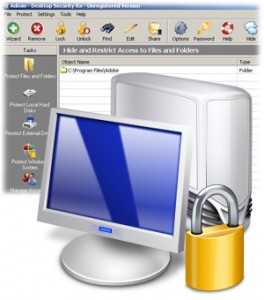 Hello everyone,
Hello everyone,
In this post, I showed you that just as “insects” can enter into your beautiful house through a torn and punctured door screen, Internet “bugs” can enter into your beautiful computer through holes in the Windows Operating System.
In the case of the screen door, a repairman comes and closes up the tears and punctures and the “insects” can no longer get into your beautiful house. Your house is once again safe and secure!
In the case of the computer, Microsoft Windows Update comes on the second Tuesday of each month and “patches” the “holes” in your Operating System. The Internet “bugs” can no longer get into your beautiful computer and wonderful OS. Your computer is once again safe and secure!
Microsoft Windows Update has done it’s duty and you are now secure from outside security exploits and vulnerabilities – how cool!! Nothing can get into your beloved computer now – right?? Surf away!, click away!, Microsoft has closed the door and nobody will open it – right??
WRONG!!! MICROSOFT WON’T OPEN THE DOOR BUT YOU WILL!!!!!
Since Internet “bugs” have been locked out of your computer by Windows Update, these “bugs” now need your cooperation to get into your system and they will do everything possible to trick you into letting them in! How will they get in now? You will open the door, you will unwittingly let them in!! You will accidentally allow them to install! They will fool you into letting them in!!
In my next few posts I want to tell you how “bad bugs” (viruses, worms, trojans, spyware, adware, rootkits, browser hijackers, phishing deceivers, etc.) will try to enter your system. I’ll tell how you can be aware of their tricks, and what you should do to prevent them from entering (and it’s not by running antivirus/ antispyware/antimalware programs!). Many times it’s “too little too late” by then!
1) Enable Windows Firewall: (Start > Control Panel > Windows Firewall > Turn On Windows Firewall). The built in Windows Firewall is very good and will prevent your system from external invasion from the Internet or Network. Don’t open up any ports nor allow exceptions unless it can’t be avoided. Adding a hardware router is even better (I’ll talk about it in my next post).
2) Email Procedures (If you don’t know the sender):
A) Don’t open an email (just opening won’t infect your system but why do it? – there could be something malicious attached which you may accidentally open).
B) Don’t click on any links inside the email (the links are phony, they will take you to another site, the text will actually be an image which contains malware or a bad program which will be downloaded onto your computer. Many links are just an IP address (like http:// 75.455.30.78) which will take you to a bogus site waiting to deceive you!).
C) Don’t open any email attachment (you will accidentally install malicious software!).
D) Don’t give out important personal details (no legit business institution will ask for personal information by email. Don’t click on any link – it will take you to a phony login site that looks legit but isn’t – there you will give your credit card # and other personal information).
E) Don’t install software from any company ( No legit company will ask you to install programs, updates, fixes, etc. through an email notification or email link. You will actually install infectious, malicious software).
F) Never reply to spam emails (when spammers email you they really don’t know if their email is getting to you or not. If you reply by clicking a link that “will remove you from their mailing list” they will now know that someone indeed is at the address and will send you even more spam. Use your email program to filter spam but never reply to it).
G) Don’t fall for “unbelievable” offers (If someone offers you a lot of money, free products or great reward in exchange for your personal information – don’t “bite”. They want your email address, phone number or more in order to use it against you! It’s a scam!!).
Professor Randy says: Don’t be your own worst enemy! “Bad bugs” can’t enter your computer unless YOU allow them to!! Keep your system safe and secure by knowing the tactics of the enemy and by not letting him in!!


